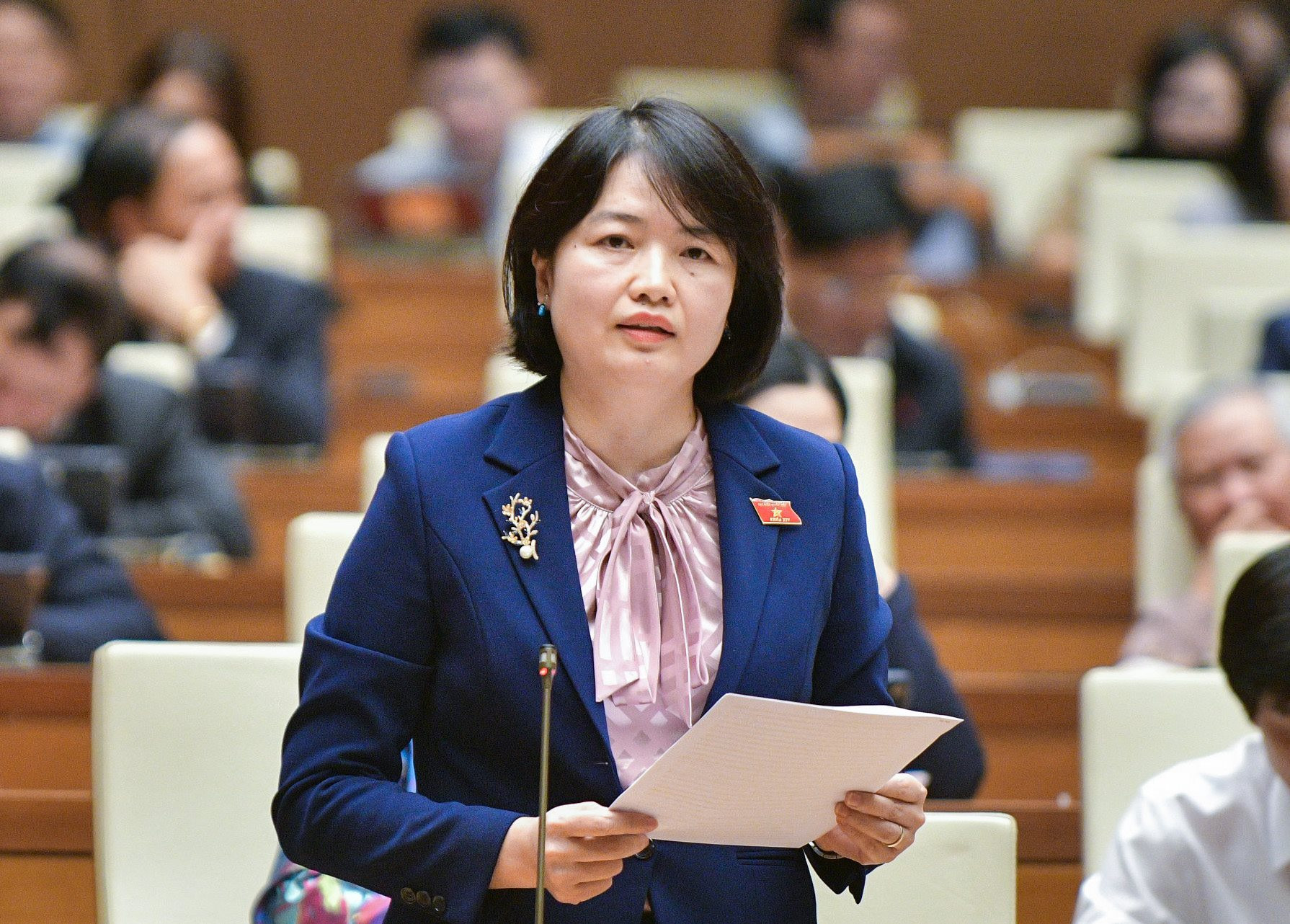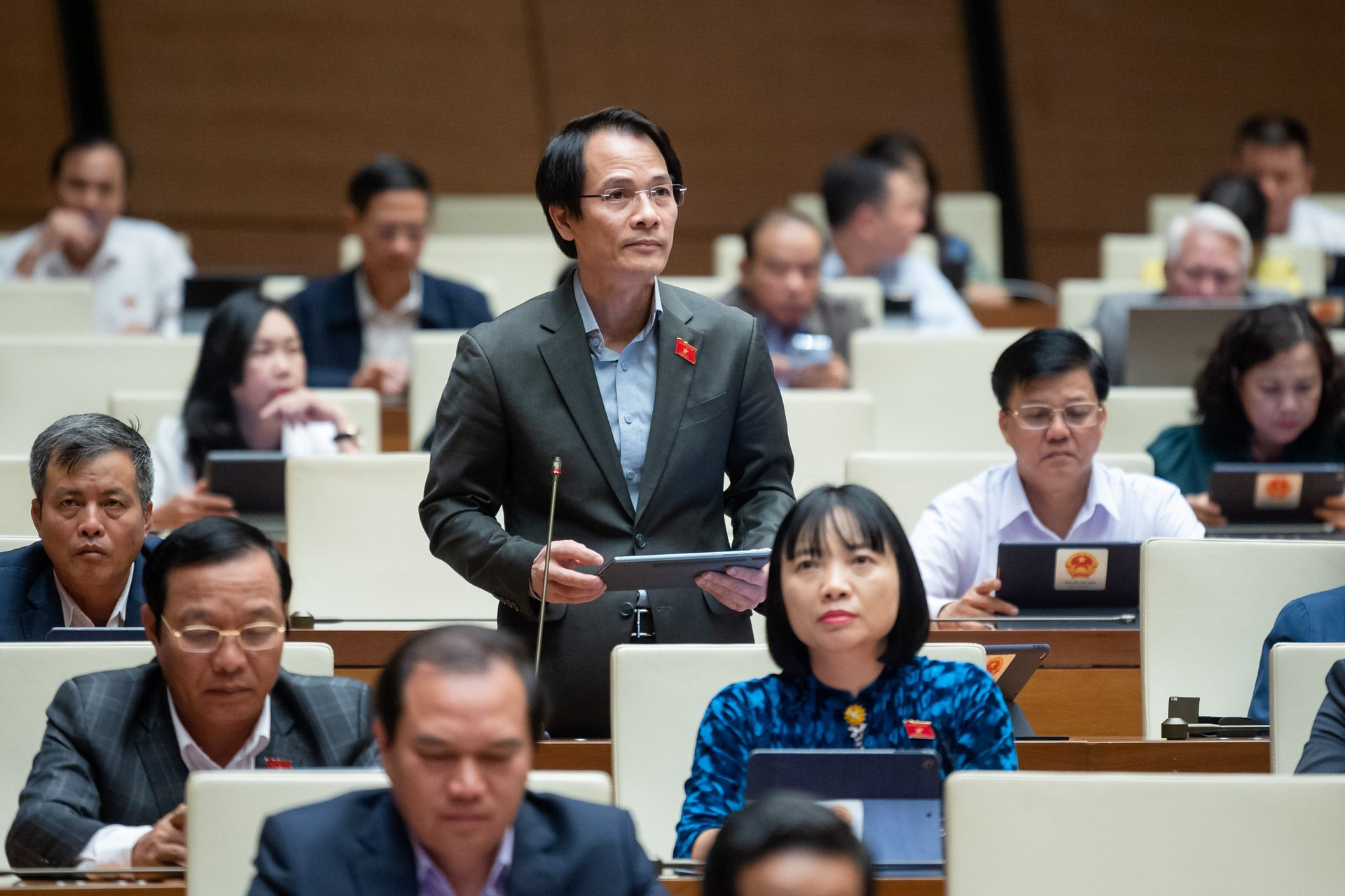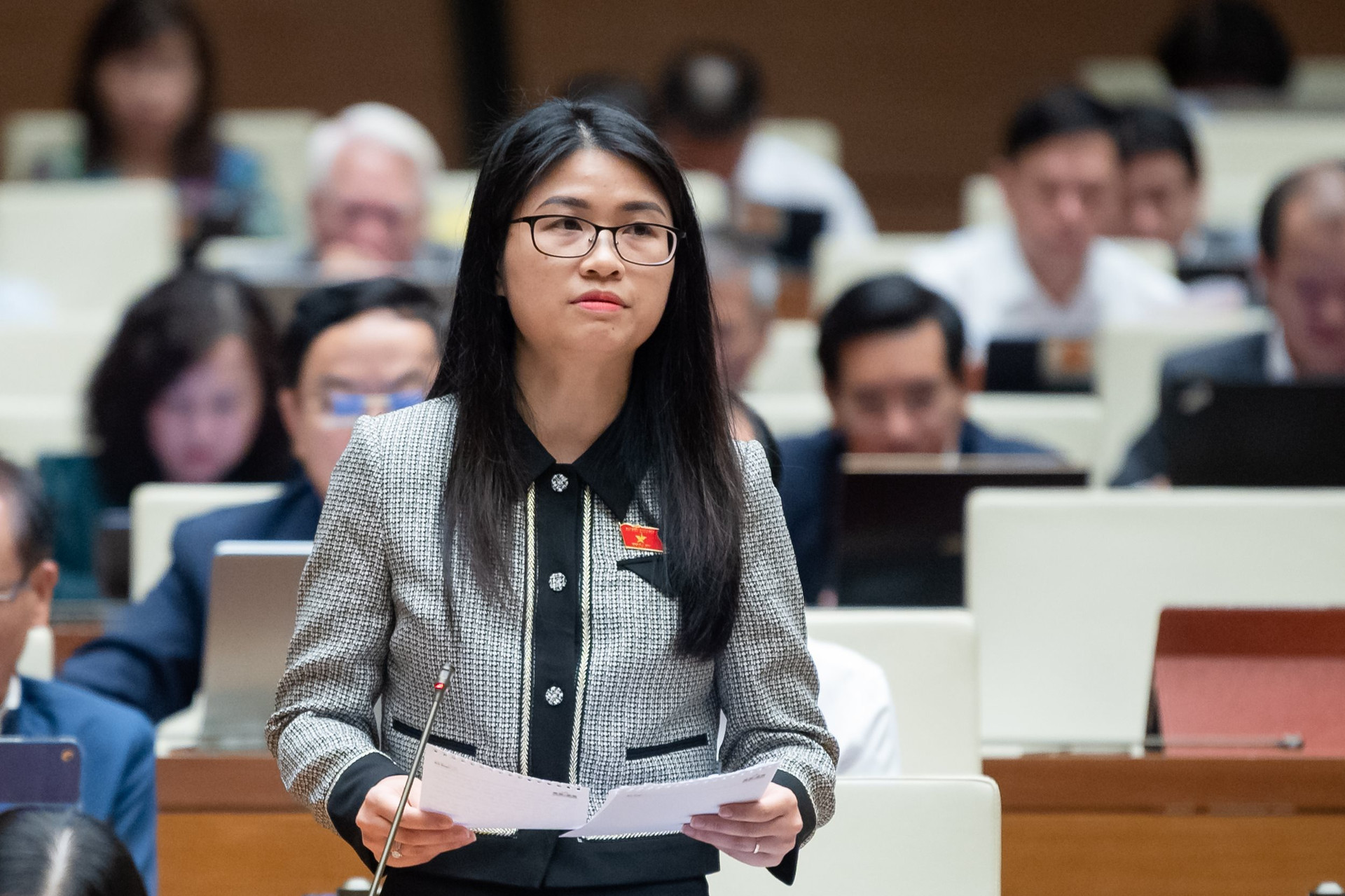On the afternoon of November 22, 3 National Assembly deputies of Hai Duong province had a heated discussion in the hall, contributing many notable opinions to the draft Law on Organization of People's Courts (amended).

Continuing the program of the 6th session of the 15th National Assembly, on the afternoon of November 22, the National Assembly discussed in the hall the draft Law on Organization of People's Courts (amended). 3 National Assembly deputies from Hai Duong province enthusiastically discussed this draft law.
The regulations are still general.
Believing that specific regulations on the content of judicial power exercised by the People's Court are necessary, delegate Nguyen Thi Mai Thoa, Standing Member of the National Assembly's Committee on Culture and Education, suggested that strict regulations should be made, clearly showing that in the State's organizational system, not only the People's Court exercises judicial power.
Regarding the addition of duties and authority to review the constitutionality and legality of legal documents in adjudication, delegate Nguyen Thi Mai Thoa assessed that these provisions are still very general, not specifying which types of documents under the jurisdiction of the court can review and decide on their constitutionality and legality. "Do these documents include laws and resolutions of the National Assembly; ordinances and resolutions of the National Assembly Standing Committee? What is the authority of the court at each level and what is the specific implementation process of this authority?", delegate Thoa asked.
No provision for interpretation of applicable law

Delegate Bui Sy Hoan is concerned that the regulation that courts have the duty and authority to interpret and apply the law in trials may give rise to a number of problems.
"Only the law-making agency can correctly interpret the spirit of the law. When the National Assembly promulgates a law, only the National Assembly Standing Committee can interpret the law. The Government, ministries, and branches issue decrees and circulars only to guide implementation or provide detailed regulations. The Supreme People's Court's Judicial Council also only issues resolutions to guide the adjudication process," delegate Hoan analyzed.
Delegate Hoan also wondered whether the results of the interpretation of the application of law in trials are one of the sources of reference for resolving other cases or only serve the trial of that specific case.
Therefore, the delegate suggested not to stipulate this content in the draft or to re-regulate it in the direction of "explaining the reasons for applying legal regulations" for clarity and consistency.
Protect the courthouse even more tightly

Concerned about security at courthouses, delegate Dinh Thi Ngoc Dung suggested that there should be an effective mechanism to ensure security and order at courthouses.
From the practical work of the court, delegate Dinh Thi Ngoc Dung realized that this is an urgent requirement because the court headquarters is often crowded, especially when there is a trial.
"The people attending the trial are often relatives of the defendant, victim, plaintiff, and defendant in the cases. When they come to court, these people are likely to be stressed with each other. In many cases, there have been fights, even opposing the presiding judge or attacking the prosecutor," said delegate Dinh Thi Ngoc Dung.
In addition, some negative opposition elements have taken advantage of the public trial to attract, entice, and incite people, causing disturbances at the courthouse. Currently, only the Supreme People's Court has police protection. Delegate Dung said that courthouses are places that manage and store documents related to deciding the lives, freedoms, rights, and obligations of organizations and individuals, so they need to be more closely protected.
Delegate Dung also proposed stricter regulations on information at court because there were some cases of live broadcasting and sharing images of court proceedings on social networks and media, causing misdirection, affecting the trial process and attacking and criticizing those participating in the trial.
SNOW WIND